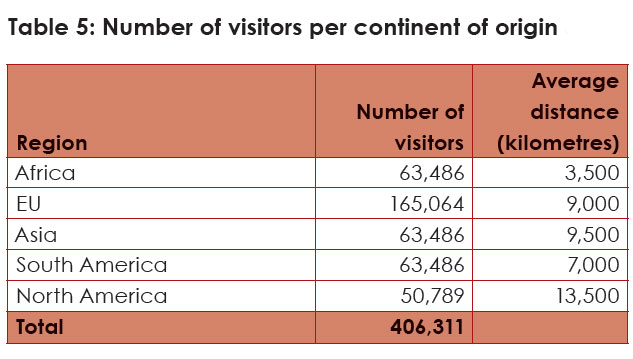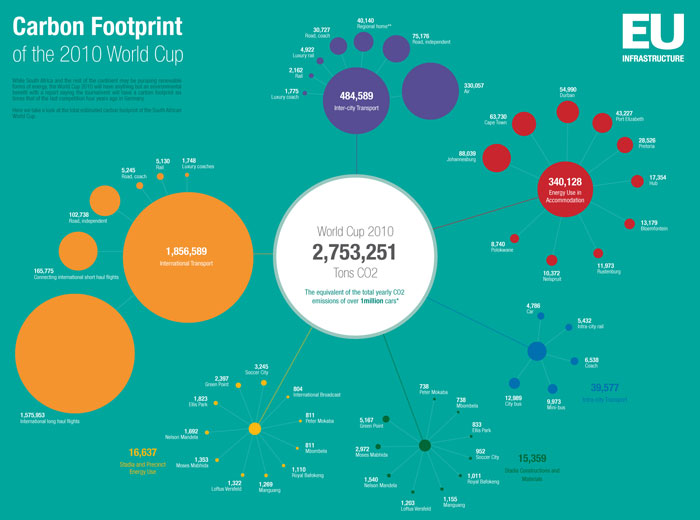The FIFA 2010 World Cup will have the largest carbon footprint of any major event with a goal to be 'climate neutral'.
South Africa's hosting of the 2010 FIFA World Cup will be one of the most important recent events in Southern Africa. The Green Goal 2010 initiative seeks to ensure that this event also has a long term sustainable development impact on the country and region.
The Department of Environmental Affairs & Tourism (DEAT) in South Africa initiated a process with the local UNDP office to design, mobilize resources for and initiate a programme to make the FIFA 2010 World Cup a "carbon neutral' event. UNDP developed a draft Terms of Reference for the overall carbon neutral programme, which highlights the particular importance of offsetting the transport related greenhouse gas (GHG) emissions from the World Cup.
The estimated carbon footprint of the 2010 FIFA World Cup is 896,661 tonnes of carbon dioxide equivalent, with an additional 1,856,589 CO2 contributed by international travel.

The footprint excluding international travel is more than eight times the estimated footprint of the 2006 World Cup in Germany. The main reasons for the huge carbon footprint are 1. Lack of existing infrastructure - South Africa needed to build entirely new stadia whilst Germany used many existing venues, meaning massive amounts of carbon-intensive concrete.
2. Internal transport - the distances between venues for the South African event are far larger, adding a bigger carbon footprint from fans travelling between games during the World Cup. For inter-city transport, which is the largest component after international transport, distances between matches in South Africa are much greater than in Germany, and the lack of high speed rail links means the most visitors will fly multiple times between matches, leading to much higher transport emissions.
3. Energy mix - South Africa’s energy is primarily based on coal, with one of the dirtiest supplies of energy of any country in the world. Germany by contrast has one of the biggest levels of renewable energy installations in the world.
4. Lower building efficiency - after internal transport, the next biggest factor is accommodation energy use. Due to the poor energy efficiency of local buildings, this is estimated to be three and a half times worse per person for the South African World Cup than in Germany.
5. Energy use in accommodation is higher than for the 2006 Games. This is further exacerbated by the average football fan staying for longer due to the average travelling distances being much greater.

MOST POPULAR IN LAST 24 HRS
MOST POPULAR IN LAST 7 DAYS
|